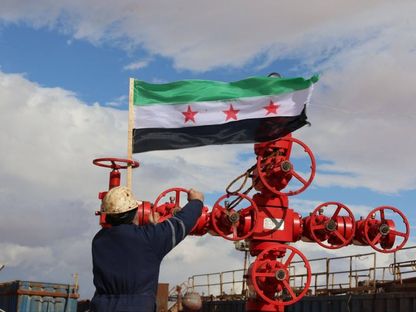The Ambitions of Oil Companies' Return to Syria Face Reality Challenges

"Gulf Sands" is not a stranger to the Syrian oil scene. The company entered the country in 2003 through a production-sharing agreement with the Chinese company "SinoChem" to develop the "Block 26" field in northeastern Syria, which was producing about 25,000 barrels per day before operations ceased in 2011 due to sanctions and security conditions.
The British company is now proposing the "Hope Project", which aims to invest in oil resources in a legitimate and transparent manner, with potential revenues reaching up to 20 billion dollars annually according to its estimates. It also indicates that the field contains more than one billion barrels of recoverable resources, with the possibility of increasing production to 100,000 barrels per day.
However, the road to reconstruction is still fraught with security challenges and economic losses, as the company's estimates indicate losses of about 14 billion dollars, and the infrastructure requires massive investments to rehabilitate the damaged facilities, while the operational environment needs to ensure stability and transparency conditions for international companies.
These negotiations represent a real test of the Syrian government's ability to attract international investments after years of isolation. Its success could open the door for the return of other oil companies, while failure could return the Syrian economy to square one.
The world is watching these developments, as Syrian oil could become pivotal in the global energy equation, especially with the increasing needs for reconstruction. However, success will depend on the ability of all parties to overcome political differences and prioritize the economic interests of the Syrian people.